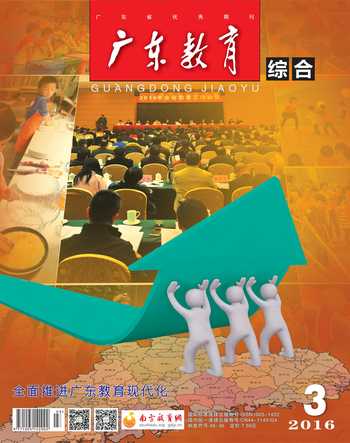聽力微技能培養(yǎng)策略在高中英語(yǔ)聽說(shuō)課中的有效滲透
王青英

《普通高中英語(yǔ)課程標(biāo)準(zhǔn)(實(shí)驗(yàn))》中對(duì)聽力這種語(yǔ)言技能的教學(xué)目標(biāo)描述為:能聽懂有關(guān)熟悉話題的談話并能抓住要點(diǎn),能識(shí)別語(yǔ)段中的重要信息并進(jìn)行簡(jiǎn)單的推斷,能聽懂正常語(yǔ)速聽力材料中對(duì)人和物的描寫、情節(jié)發(fā)展和結(jié)果,能聽懂熟悉話題的內(nèi)容、識(shí)別不同語(yǔ)氣所表達(dá)的不同態(tài)度。其實(shí)這些都是聽力微技能的體現(xiàn)。所謂“微技能”,實(shí)際上就是人潛在的微妙的心理認(rèn)知能力,它支配人的行動(dòng)和思維,包括語(yǔ)言學(xué)習(xí)。聽力微觀技能即聽力理解方面的具體技能技巧、聽力理解微技能,主要包括辨音、獲取主要信息、預(yù)測(cè)能力、猜詞語(yǔ)意的能力等。研究表明,注重聽力微技能的培養(yǎng),運(yùn)用各種教學(xué)手段,能夠較好地提高聽力理解的能力。因此,在提高聽力的過(guò)程中,應(yīng)注重微技能的訓(xùn)練培養(yǎng)。本文以我的一節(jié)聽說(shuō)課“Water saving”為例,談?wù)勅绾卧O(shè)計(jì)教學(xué)環(huán)節(jié)和任務(wù),培養(yǎng)學(xué)生的聽力微技能。
Step 1: Lead- in
1. Appreciate a lot of pictures with colorful flowers, green grass and tall trees and ask students to think about the question: What is the most important for the flowers, grass and trees?
S: Sunshine... soil... water...
T: They are all very important, but the most important is water, because water is the source of everything.
2. Ask the students to appreciate another picture and answer: What can we see in this picture?
S: An eye... a drop of tear... smoke ....
T: What does the picture want to tell us?
S: Protect our environment...
T: Actually, it tells us that if we dont protect our environment from now on, the last drop of water on the earth maybe is our tear.
(設(shè)計(jì)意圖:通過(guò)美麗的自然風(fēng)光的圖片來(lái)激發(fā)學(xué)生興趣,然后展示一張與之前圖片迥然不同的圖片,構(gòu)成強(qiáng)烈反差,帶來(lái)強(qiáng)烈的視覺(jué)和心靈震撼,喚醒他們對(duì)保護(hù)環(huán)境,尤其是節(jié)約水資源的重視。)
Step 2: Pre-listening
Brainstorming:What can we do to save water in our daily life?
S1:Turn off the tap at once after every use.
S2: Reuse the water. For example, use the water first to wash clothes, and then use it to water flowers.
S3: ...
(設(shè)計(jì)意圖:激活已有知識(shí),也為下一環(huán)節(jié)做鋪墊。)
Step3: While-listening
Task1: Listen and answer the following two questions.
Q1: According to WRA, what is the reason for the waste of water?
Q2: What are the simple ways mentioned to save water in peoples daily life?
Answer keys: Q1: The low price of tap water.
Q2: To turn off the tap after every use; To use a dishwasher instead of hand-washing; To store cold water for later use when taking a shower.
(設(shè)計(jì)意圖:這是global listening,培養(yǎng)學(xué)生聽取主要信息的能力。讓學(xué)生通過(guò)回答以上兩個(gè)問(wèn)題來(lái)獲取main idea.因?yàn)槁犃Σ牧鲜钦n外的,通過(guò)回答兩個(gè)問(wèn)題來(lái)獲取main idea,可以適當(dāng)降低聽力任務(wù)難度。)
Task2: Listen again and write down the missing words.
The Water Resources Agency (WRA) of Taiwan has called on people to save water as a way to reduce pollution. The WRA pointed out that the low price of tap water in Taiwan, which has not increased in 1 years, has led people to waste the 2 resource. The lack of water has become a
3 of global tension. WRA suggests a water price rise and the 4 proposed a water cap system—might not appeal to the public during such economically difficult time. Before such
5 is made, people can save water through many simple ways in addition to
6 turning off the tap after every use. According to a study by environmental "Friends of earth," if every family in the UK used a dishwasher instead of hand-washing, more than a
7 liters of water would be saved every day. Another 8 waste of water that can be 9 : Tons of bathing water run down the drain unused every day as people wait for it to be
10 . Some people are already saving the cold water by storing it for later use. A more effective way to change the
11 is to improve the design of water heaters.
Answer keys: 1. fourteen/14 2. valuable 3. source 4. economist 5. policy 6. mindfully 7. quarter billion 8. typical 9. prevented 10. heated 11. situation
(設(shè)計(jì)意圖:這一環(huán)節(jié)的設(shè)計(jì)為intensive listening,主要培養(yǎng)學(xué)生聽取細(xì)節(jié)和猜測(cè)詞義的能力。所設(shè)置的空皆為實(shí)詞,因?yàn)閷?shí)詞傳達(dá)了更為重要的信息。空1和7的設(shè)置是為了提醒學(xué)生在聽力時(shí)一定要注意聽力材料中出現(xiàn)的數(shù)詞。空4、5、6三個(gè)所填入的詞對(duì)高一學(xué)生來(lái)說(shuō)是生詞,設(shè)置的目的是提醒學(xué)生在聽力材料中即便聽到了生詞也不要驚慌,可以在聽的過(guò)程中快速記下單詞發(fā)音,再根據(jù)所學(xué)的音標(biāo)知識(shí)寫出相應(yīng)的單詞,猜測(cè)單詞的含義。)
Step4: Discussion
Discuss in groups of four to find out waste phenomena(現(xiàn)象) in our school and give advice on how to prevent them.
(設(shè)計(jì)意圖:這一環(huán)節(jié)是對(duì)以上聽力材料的拓展,讓學(xué)生在聽的基礎(chǔ)上能發(fā)散思維,既充實(shí)了聽力材料信息,也能對(duì)學(xué)生進(jìn)行情感價(jià)值觀教育的滲透。)
Step5: Listening practice
Listen and fill in the blanks.
Waste can be seen 1 . Some students ask for more food than they
2 . Some students forget to 3 the tap after they finish washing and others often forget to turn off the lights when they leave the classrooms. Waste can bring 4 problems. Though China is
5 resource, it is 6 . It is reported that we will have no 7 to use in 100 years. So if we 8 wasting our resources, what can we use in the future and where can we go? 9 . I think we should say no to the students who waste things every day. Everybody should stop wasting 10 . If we do our best, waste can be stopped one day and many natural resources can be saved.
Answer keys: 1. everywhere at school 2. can eat 3. turn off 4. a lot of 5. rich in 6. short of others 7. coal or oil 8.go on 9. Think about it 10. as soon as possible
(設(shè)計(jì)意圖:這一材料其實(shí)是對(duì)以上所有聽和說(shuō)的一個(gè)總結(jié),材料本身難度不大。從所設(shè)置的空答案來(lái)看,所填入的詞都存在連讀現(xiàn)象,這一任務(wù)的設(shè)置是培養(yǎng)學(xué)生在聽力過(guò)程中的辨音能力,聽完之后根據(jù)錄音進(jìn)行模仿朗讀,也是為了有意識(shí)地培養(yǎng)學(xué)生的連讀技能。)
Step 6: Conclusion & Assignment
Task 1: Write a letter about your discussion results to Principal Li.
Task 2: Read the second passage.
(設(shè)計(jì)意圖:激發(fā)學(xué)生校園生活主人翁的意識(shí),同時(shí)使課堂與實(shí)際生活直接相聯(lián)系,讓學(xué)生更有參與熱情。)
這節(jié)課的話題源于課本,但所用材料并不拘泥于課本,而是選自網(wǎng)絡(luò)資源,并根據(jù)高一學(xué)生實(shí)際水平對(duì)材料進(jìn)行刪減和處理,使之為課程目標(biāo)服務(wù)。英語(yǔ)教師作為學(xué)生走向世界的領(lǐng)路人,更應(yīng)該有開闊的眼界,不能“唯課本論”,而應(yīng)善于利用一切優(yōu)秀資源為教學(xué)所服務(wù)。這節(jié)課各個(gè)任務(wù)的設(shè)置環(huán)環(huán)相扣,圍繞著一個(gè)話題“說(shuō)透”,而不是“蜻蜓點(diǎn)水”。“節(jié)水”這一話題于學(xué)生來(lái)說(shuō)并不新奇,但是選用材料中所提供的信息又給學(xué)生打開了另一個(gè)思路。在任務(wù)設(shè)置上將聽力微技能中培養(yǎng)學(xué)生辨音、獲取主要信息、預(yù)測(cè)能力、猜詞語(yǔ)意等滲透在各個(gè)聽力練習(xí)中,做到對(duì)學(xué)生聽力微技能的培養(yǎng)“潤(rùn)物細(xì)無(wú)聲”。
當(dāng)然,任何一門語(yǔ)言技能的培養(yǎng)都不可能一蹴而就,需要長(zhǎng)期的堅(jiān)持才能初見成效,這就需要我們老師做好長(zhǎng)期作戰(zhàn)的準(zhǔn)備,在平時(shí)的教學(xué)中進(jìn)行有效的滲透和堅(jiān)持,終有一天我們會(huì)聽到花開的聲音。
責(zé)任編輯 魏文琦

